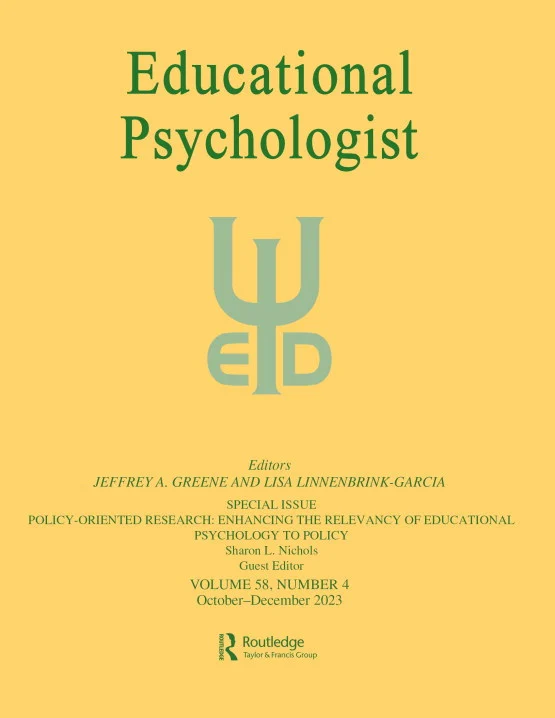循证改革将如何改变教育的研究和实践
IF 14.3
1区 心理学
Q1 EDUCATION & EDUCATIONAL RESEARCH
引用次数: 62
摘要
基于证据的教育改革是指能够或鼓励使用经过严格研究证明有效的方案和实践的政策。本文讨论了证据在教育政策中日益重要的作用,已证明的方法的可用性的快速增长,以及总结证据的研究综述的发展。以证据为基础的改革的一个亮点是2015年通过的《每个学生成功法案》,该法案为教育项目定义了强有力、适度和有希望的证据水平,并将某些联邦资金与使用经过验证的方法联系起来。为了说明如何协调使用经过验证的方法可以大大改善教育成果,本文建议使用经过验证的程序来填充第1、2和3层,以响应干预政策。本文章由计算机程序翻译,如有差异,请以英文原文为准。
How evidence-based reform will transform research and practice in education
Abstract Evidence-based reform in education refers to policies that enable or encourage the use of programs and practices proven to be effective in rigorous research. This article discusses the increasing role of evidence in educational policy, rapid growth in availability of proven approaches, and development of reviews of research to summarize the evidence. A highlight of evidence-based reform was the 2015 passage of the Every Student Succeeds Act, which defines strong, moderate, and promising levels of evidence for educational programs and ties certain federal funding to use of proven approaches. To illustrate how coordinated use of proven approaches could substantially improve educational outcomes, the article proposes use of proven programs to populate each of Tiers 1, 2, and 3 in response to intervention policies.
求助全文
通过发布文献求助,成功后即可免费获取论文全文。
去求助
来源期刊

Educational Psychologist
Multiple-
CiteScore
19.10
自引率
3.40%
发文量
16
期刊介绍:
The Educational Psychologist is a scholarly journal dedicated to exploring the psychology of learning and instruction. Articles in this journal encompass a diverse range of perspectives, from examining psychological mechanisms to exploring social and societal phenomena related to learning and instruction. The journal publishes theoretical and conceptual articles, as well as reviews and meta-analyses, that significantly contribute to theory or advance the methods used to explore educational psychology. Emphasizing innovation and advancing understanding, the journal does not publish articles solely reporting the methods and results of empirical studies; instead, all submissions, including reviews and meta-analyses, must offer clear implications for advancing theory. In addition to regular articles, the journal features special issues that delve into important themes in educational psychology, along with focal articles accompanied by peer commentary.
 求助内容:
求助内容: 应助结果提醒方式:
应助结果提醒方式:


